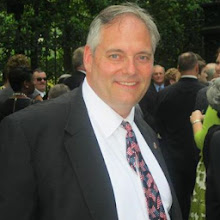After the death of Jack Kemp, former Buffalo Bills quarterback and Housing and Urban Development Secretary under President Ronald Reagan, I assembled the comprehensive ranking of this nation’s most successful athlete-politicians.
That list is available (link temporarily disabled until Suite 101 article is published).
The procedure for putting together that list is as follows:
1) Everyone cited must have performed his or her (there was one, and almost two) women on the list) athletic and political careers entirely in the United States (or, in the case of Olympians, representing the United States). Sorry, Arnold; my list, my rules. Seriously, though, it was difficult enough to judge the merits of an Olympic gold medalist against those of a pro football hall-of-famer without adding an Austrian bodybuilder to the mix.
2) I took 23 names from a list of athlete-politicians from Wikipedia, and my memory, and dropped three people as unqualified to make for a nice round list of 20 finalists. Those dropped were Jack Mildren, a former NFL backup quarterback and lieutenant governor of Oklahoma; Ellen Pena, who was in the 1980 Olympic trials as a middle distance runner, and was in President Bill Clinton’s cabinet; and Kevin Johnson, an NBA standout who went on to become mayor of Sacramento.
Johnson has the potential to make the list if he won a seat in Congress because his athletic cred is well-established.
3) With the 20 finalists, I ranked each according in both athletic and political categories. Judging the 20 as athletes was subjective compared to the political comparison. In the end, I judged an Olympic gold medal to have been equal to induction into a professional hall of fame, and placed those eight finalists at the top. Beneath that, those who played professionally were placed above those who didn’t. But within those parameters, the athletic ranking was entirely my judgment call as a sports historian.
The political ranking was more objective. Each finalist’s placement was based upon the highest office he held, with consideration given to electoral losses in high-profile races. Those rankings went pretty much as follows: President, Vice-President, U.S. Senate, Cabinet, Supreme Court, Congress, Governors. If more than one person rose to the same office, seniority was used to break the tie. If the tie remained after that step, all equal finalists were judged to be tied.
4) The top-ranked person in each category received 20 points, with 19 points awarded for second and so on down to 1 point for 20th place. The athlete and politician scores were added together to determine rankings.
The Second Row: The online home of Eric Poole, author of "Company of Heroes," the story of Vietnam War Medal of Honor recipient Leslie Sabo Jr. and his Currahee comrades. I'll talk here about politics, history, popular culture, sports (especially rugby) and anything else that I feel like discussing.
Bio

- The Second Row
- Ellwood City, Pennsylvania
- Eric Poole is a reporter and columnist for the Ellwood City (Pa.) Ledger, a small newspaper nestled near the Ohio state line in the heart of Steelers Country. He has a wife, a son and a daughter (so there will be some daddy stuff on this blog). A former steelworker and retired rugby player, Poole has a wide range of interests, which was reflected in the 2008 Pennsylvania Newspaper Association awards, when Poole won first-prize honors for best columns and best special project. His upcoming book, "Company of Heroes," due out March 17, 2015, from Osprey Publishing, tells the story of Vietnam War hero Leslie Sabo and his comrades. Sabo was awarded the Medal of Honor May 16, 2012, in a White House ceremony.

No comments:
Post a Comment